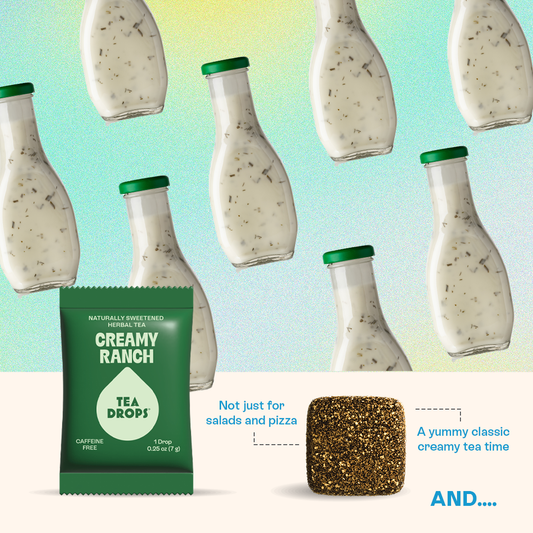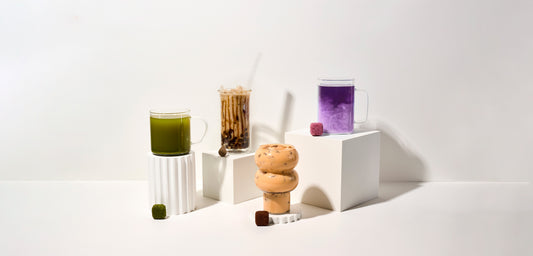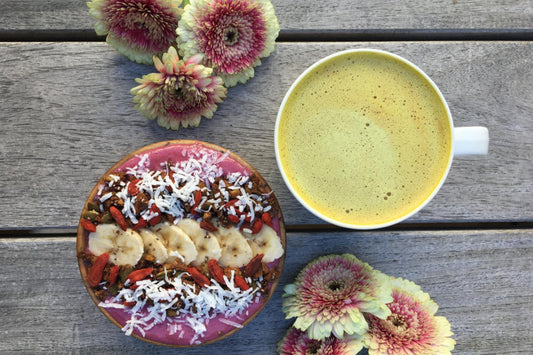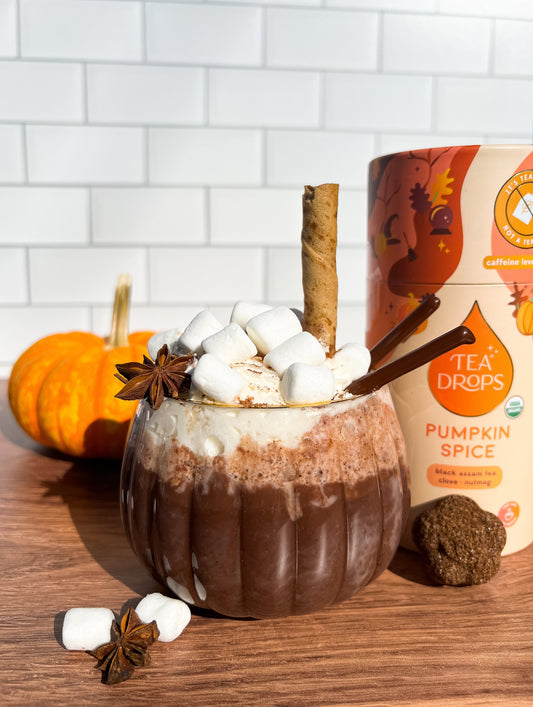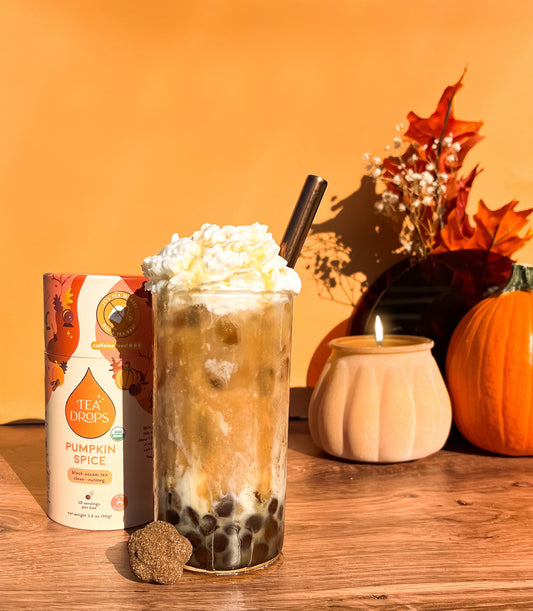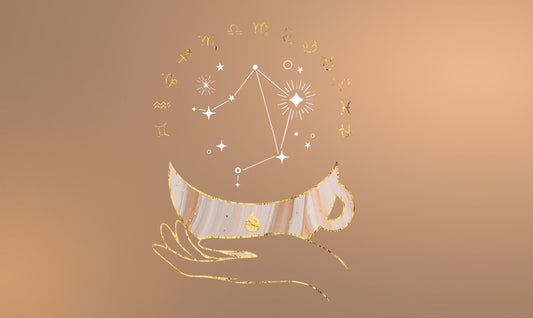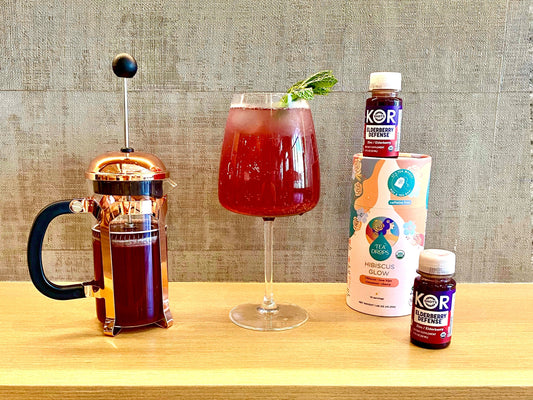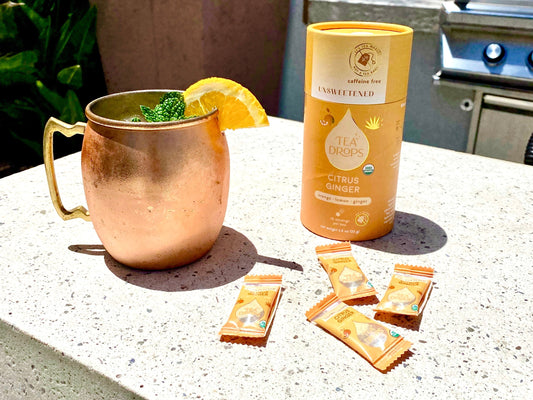
Want to fall into a deep slumber? Get youthful dewy skin? Want to improve your digestion? Rejuvenate your soul? The answer to all the above could be stashed away in the bountiful benefits of drinking herbal tea.
Herbal tea benefits are endless and with so many different types and tisanes out there, you can pick the brew that suits you and whatever health benefits you are looking for. While it may come under the name ‘tea’, herbal tea shouldn’t be confused as being one of the true tea types. There are only five true tea types and they come from the Camellia Sinensis plant, you probably know them as green, white, black, oolong, and pu’erh tea. Herbal tea on the other hand is an infusion of herbs and spices and tends to be caffeine-free and low or even free of calories, making it one of the healthiest drinks you could hope for.
What Is Herbal Tea?
Herbal tea is a drink made from steeping herbs, spices, or other plant material in hot water. Herbal tea is also known as tisane. As these teas don’t come from the camellia sinensis tea plant they are caffeine-free and often drank for their abundant natural health properties.
Herbal teas have been around for centuries and have enjoyed something of a comeback in the last few years as people are becoming more health conscious. Some people enjoy herbal tea as part of their holistic wellness, whereas others love it as part of their downtime routine or simply because they want to sip a hot drink without caffeine.
The word tisane tends to be used in Europe when talking about herbal teas. While it's still a little hazy as to how this word came to be in terms of etymology, some think it was borrowed from Middle English or Old French and in simple terms was used to refer to a ‘medicine drink’. This makes sense as the history of herbal tea stretches way back to ancient times. Ancient China and Ancient Greek both have references to herbal teas in their documented history and even in the 1st century AD, the Greek Physician Dioscorides documented hundreds of plants that could be steeped and sipped as a cure for many ailments.
You can drink herbal teas hot or cold and as they come without caffeine they can be enjoyed any time of day or night. Just like there is a ton of flora and plant matter out there, there are a ton of different herbal teas too. Some of the most common herbal teas include:
- Chamomile tea
- Lavender tea
- Ginger tea
- Turmeric tea
- Hibiscus tea
- Rooibos tea
- Elderberry tea
- Cinnamon tea
9 Herbal Tea Health Benefits
Let’s take a deeper dive into all the herbal tea benefits you could hope for.
Rejuvenation
Herbal tea can be super refreshing, not just on the palate but when it comes to the body too. For all those who feel on the brink of burnout or as though their stress levels are through the roof, sitting down with a gentle cup of tea could be the remedy you need. For example, Linden Tea is said to be a folklore remedy for anxiety and the science still carries through to this day. Chamomile tea is another sweet tisane that is known for encouraging relaxation and making sure you get all the shuteye you need, which helps the body to stay strong and fresh.
Empower Your Digestive System
Herbal tea can be awesome at helping your body to beat the bloat and encouraging healthy and fully working digestive flow. Peppermint tea and other minty fresh teas are particularly known for lending a helping hand when it comes to the digestive system. Peppermint oil has been studied when it comes to IBS with truly positive results. Dandelion tea is another tea good for the stomach as it is believed to reduce the risk of ulcers by cutting down on stomach acid.
Prevent Chronic Diseases
Herbs and spices have been used as natural medicines for centuries and many come bursting with incredible healing properties. From balancing blood sugar to keeping the heart-healthy, and being full of anti-inflammatory goodness, there are some awesome herbal teas out there that can be complementary in keeping out chronic diseases like diabetes, stroke, cancer, and heart disease. For example, rooibos tea is known for helping to prevent sugar spikes and is said to contain even more antioxidants than the superfood fighter that is green tea. Hibiscus tea is also believed to lower bad cholesterol levels which can be a major contributing factor to heart disease.
Help Fight Cold and Flu
Full of antioxidants, polyphenols, endless vitamins, and minerals, herbal tea is your golden ticket to skipping out on cold and flu season. Ginger tea is famed for helping prohibit microorganisms that can lead to infection and thanks to its anti-inflammatory properties it can reduce the symptoms of a sore throat. Peppermint and other mint teas containing menthol can also help you to breathe through a stuffy nose much easier.
Slow Aging
While we know that you can’t stop the hands of time, some herbal teas can help to reduce the physical signs of aging thanks to all those antioxidants and their ability to fend off free radicals. Free radicals can cause oxidative damage to our cells and can lead to wrinkles and the loss of elasticity in the skin, both of which tend to be associated with aging. Hibiscus tea is full of lush omega-3 fatty acids and vitamins which can contribute to a dewy youthful glow. Hibiscus has been found to have one of the highest levels of antioxidants out of all herbal teas.
Strengthens the Immune System
While there isn’t a whole heap of proof out there as to whether your immune system can be ‘boosted’, herbal tea can help to ensure that your existing immune system is working at the top of its A-game. Ginger is said to be awesome at ensuring your system is well-protected when the winter flu season sets in and turmeric is another potent spicy potion to keep you in tip-top health. Dandelion tea has also been proven to have a positive impact on your immune system as it's naturally anti-inflammatory too.
Stimulates the Brain
Finetune your focus, concentrate, and connect to the task at hand, and clear out that lingering brain fog with a cup of herbal tea to kickstart your day. Herbal tea can encourage blood flow straight to the brain, which gives your mind exactly what it needs to lock in and concentrate. Cinnamon tea has been found to improve brain function as it stops the protein called Tau which can contribute to brain issues and ailments such as Parkinson’s and Alzheimer's.
Lowers your blood pressure
Heightened stress, lifestyle factors, and the world we live in – all this can lead to a rise in blood pressure which in turn, can have a negative impact on your overall health and well-being. Committing to a lower blood pressure is essential to living a long life without the risk of strokes and heart attacks hanging over your head. Some herbal teas can help lower your blood pressure. For example, in a study on hibiscus tea and blood pressure, the results came back showing that adults who sipped three cups a day were at a lesser risk of hypertension.
Healthier Skin
While we already talked about hibiscus and its bright benefits for reducing the imprint of aging, there are other herbal teas that also bring a boost of health to your skin too. Spearmint is known for its healing and soothing abilities, especially when it comes to clearing up acne. Elderberry tea is also good for the skin as it can protect against UV rays and sun damage along with being full of nutrients to plump and perfect your skin too.
Our Powerhouse Picks of Best Herbal Teas:
Chamomile
The pretty white and yellow flowers of the chamomile plant make for a perfect soothing brew. This herbal tea dates all the way back to ancient Egypt and is still one of the most popular herbal teas today. Commonly used for easing anxiety and as a gentle and natural sleep aid.
- Calm skin problems
- Manages digestive issues
- Contributes to better sleep
- Improves heart health
- Immune boosting
- Lowers blood sugar
Hibiscus
Flower power blooms in the exotic and energetic hibiscus tea. This tea is tart and refreshing and comes with a whole heap of health benefits too. It has been a tonic for the body since Ancient Egypt and is also delicious served as an ice-tea staple for those craving a sweet summer drink.
- Lowers cholesterol
- Lowers blood pressure
- Aids digestion and weight loss
- Full of antioxidants
- Immune system booster
- Helps liver health
- Anti-bacterial properties
Ginger
Gorgeous ginger tea is made from ginger root and hot water. It is commonly sipped in the winter months to help fend off flu and colds. Ginger is hugely anti-inflammatory and also helps reduce the discomfort of nausea. It’s enjoyed by pregnant people combatting morning sickness, those fending off motion sickness, and anyone who loves the zesty refreshing taste.
- Helps treat nausea
- Boosts immunity
- Anti-inflammatory properties
- Alleviates period cramps
- Prevents indigestion
- Can improve brain function
- Fights bacteria
- Helps weight loss
Rooibos
The red rooibos tea comes from South Africa and is a deep rich color. This tea has earthy full-bodied flavors and is a great alternative for those who want a robust tea that doesn’t contain any caffeine. It’s also high in antioxidants and low in tannins.
- Lowers blood sugar
- Promotes weight loss
- High in antioxidants and vitamins, natural
- Anti-inflammatory
- Improves skin
- Aids digestion
- Lowers the risk of cancer
Peppermint
The cooling taste of peppermint can refresh all your senses. This tea is made from the leaves of the peppermint plant and is awesome at helping heal your digestion, combatting irritable bowel syndrome, and soothing an upset stomach. Peppermint tea is loved around the world and is a staple in homes from Morocco to Asia.
- Digestive aid
- Can bring relief from nausea
- Boosts immune system
- Freshens the breath
- Eases menstrual cramps
- Improves nasal airflow
- Reduces stress
Echinacea
Another member of the daisy family (just like chamomile), echinacea tea is most famed for its cold and flu-fighting properties. This tea promotes immune function and is said to be tongue-tingling in flavor. It is usually combined with other herbs and spices to make it more palatable.
- Antioxidant-rich
- Can reduce cold and flu symptoms
- Can reduce anxiety
- Anti-inflammatory properties
- Can heal skin conditions like acne
Rosehip
Made from the small red fruit buds of the rose plant, rosehip tea is always a rich and ripe herbal remedy. This delicate tea comes with a slightly sharp aftertaste and has been linked to a host of health benefits including helping stabilize blood sugar, improving heart health, and keeping immunity in tiptop shape.
- Supports the immune system
- Rich in Vitamin C
- Improves blood flow to the heart
- Can help with weight loss
- Good for type 2 diabetes
Possible Side Effects of Herbal Tea
Overall herbal tea is considered to be super safe and enjoyable for everyone with no proven side effects. Like with any herb or spice, there are some people who may be sensitive to certain elements so always check with your medical professional if you have any allergies or sensitivities. Some herbs or spices may contribute to hormonal balance, dizziness, skin rash, nausea, heartburn, or other side effects too. Always research the individual tisane to make sure you are educated on the potential pros and cons of introducing this drink to your daily diet.

Frequently Asked Questions About Herbal Tea
Is it good to drink herbal tea before bed?
As herbal teas don’t contain any caffeine, they can be enjoyed as part of your nightly wind-down routine. Some herbal teas like peppermint and chamomile are known for relaxing the body and easing anxiety making it easier to fall into a sweet sleep.
Which herbal tea is best for weight loss?
There are lots of herbal teas out there that can assist you on your weight loss journey. Rooibos tea studies have suggested that this brew may help with fat burning. Rosehip tea is another tea that can actively help with weight loss. As most herbal teas are low in calories, they can be a great way of staying hydrated and curbing sugar cravings too.
Is it OK to drink herbal tea every day?
Herbal teas are safe to drink every day if you aren’t sensitive to the plant in question. Most people enjoy 3-4 cups a day without any adverse side effects.
Does herbal tea help you with constipation?
Some herbal teas have natural laxative qualities such as senna. Peppermint and ginger are also known for soothing stomach issues and helping you to maintain a healthy and naturally working digestive system.
Wrap Up
There are tons of herbal tea benefits and with so many different kinds of herbal teas on the market, you can pick the perfect tisane taste for you when it comes to drinking tea. Whether you want the soothing calm of chamomile, the refreshing zest of peppermint, or the healing properties of hibiscus, each tea comes loaded with its own medicinal magic.
**Medical Disclaimer: The information in this article is for informative purposes only and shouldn’t be taken as medical advice. Those who have any health-related queries should be sure to reach out to a medical professional. These statements have not been evaluated by the Food and Drug Administration. This article is not intended to diagnose, treat, cure, or prevent any disease.


